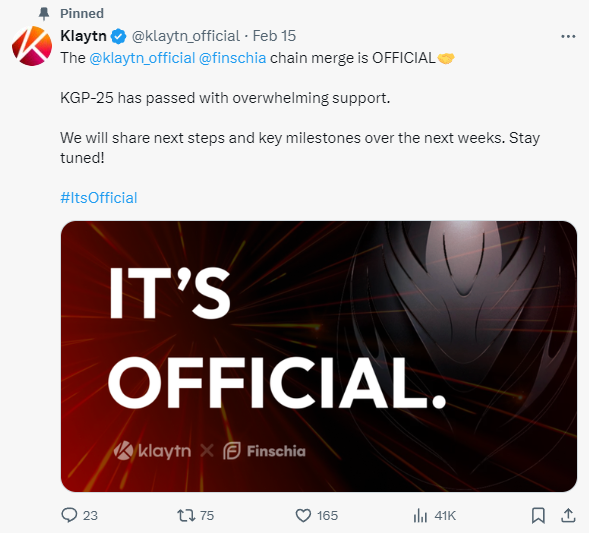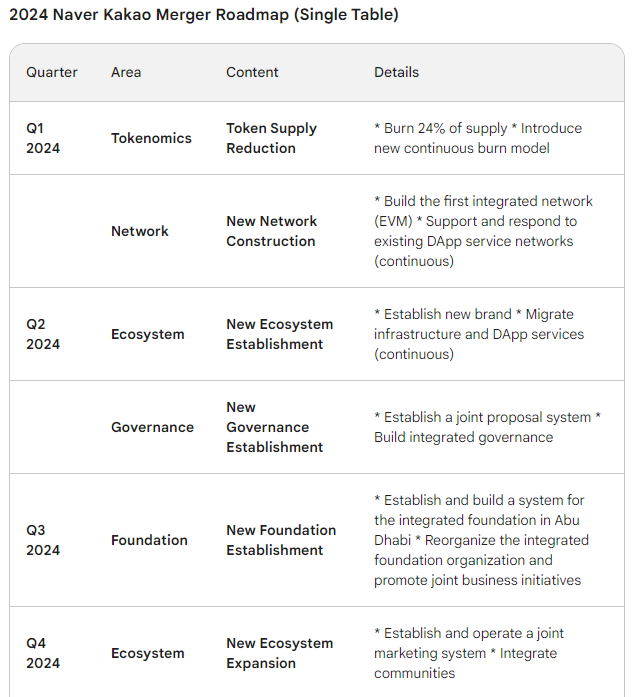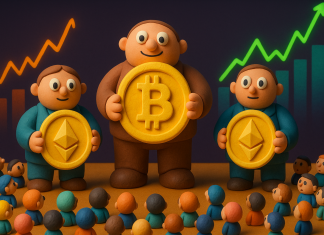
The domestic blockchains Klaytn (KLAY) and Finsia (FNSA) have successfully completed their mainnet integration. Despite opposition from Finsia investors and governance participants, both foundations achieved a consensus rate of 94.90% through continuous communication and persuasion, leading to the approval of the integration proposal. This decision was made possible by the overwhelming support in the governance vote for the network integration proposal jointly proposed by the Klaytn and Finsia foundations. The withdrawal of opposition from key Finsia governance participants who had initially opposed the proposal played a decisive role in the voting process.
The integrated mainnet will issue a new utility token, ‘Project Dragon Token (PDT, tentative name),’ combining KLAY and FNSA on the Ethereum Virtual Machine (EVM) basis of Klaytn. This will support token exchanges between the two blockchains and the migration of ecosystem participants. The integration process is planned to start within the second quarter, led by the integration task force (TF) team of both foundations.
The new blockchain foundation resulting from this integration will be established in Abu Dhabi, United Arab Emirates (UAE), with all tasks previously handled by each foundation being transferred to the new entity. Notably, the governance decision-making structure of the integrated foundation will follow Finsia’s governance model, maintaining a system where investors delegate their voting rights to governance participants.

This integration aims to create the largest blockchain ecosystem in Asia, with Klaytn and Finsia forming the country’s largest coin project, boasting a combined market capitalization of approximately 1.4 trillion won. Both foundations have decided on mainnet integration as a proactive response to the anticipated explosive increase in institutional and public demand in the market.
However, there is still concern within the industry regarding the integration. Klaytn and Finsia, each based on different mainnets and programming languages such as Ethereum and Cosmos, possess distinct cultures, visions, and technical infrastructures, suggesting that the integration process could be complex. Additionally, there are concerns about potential degradation of ecosystem trust, the possibility of partner departures, the risk of re-listing, and legal risks.






